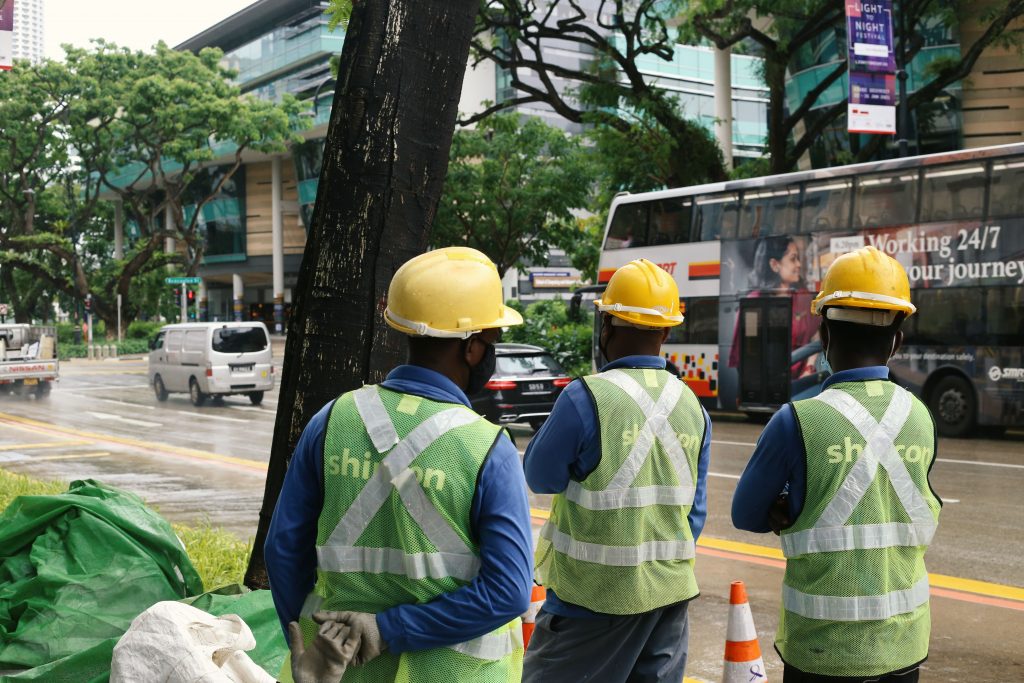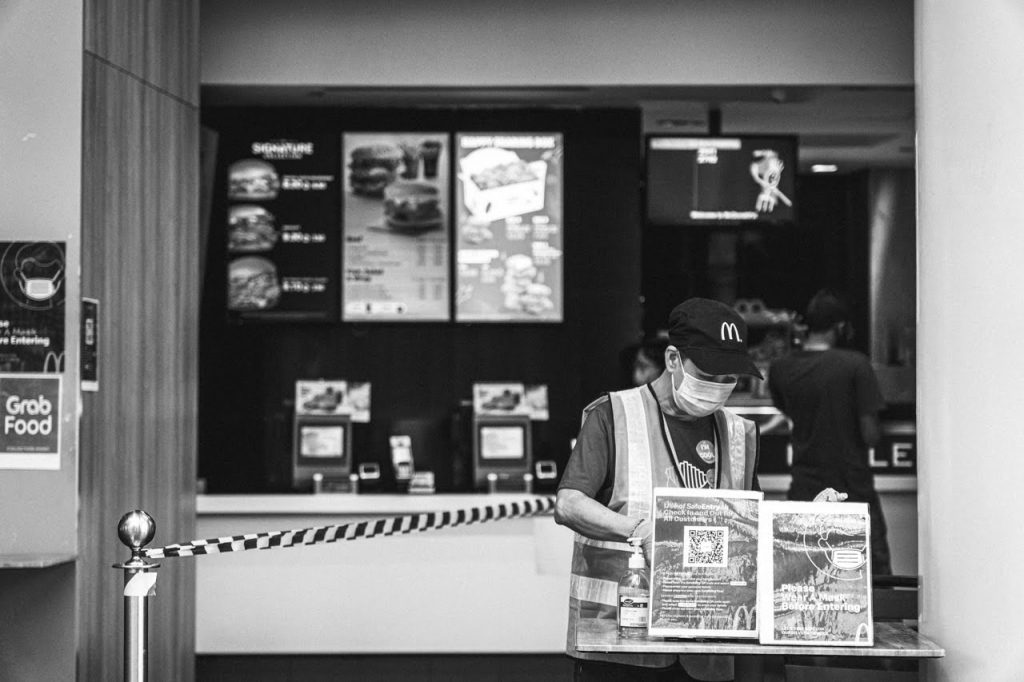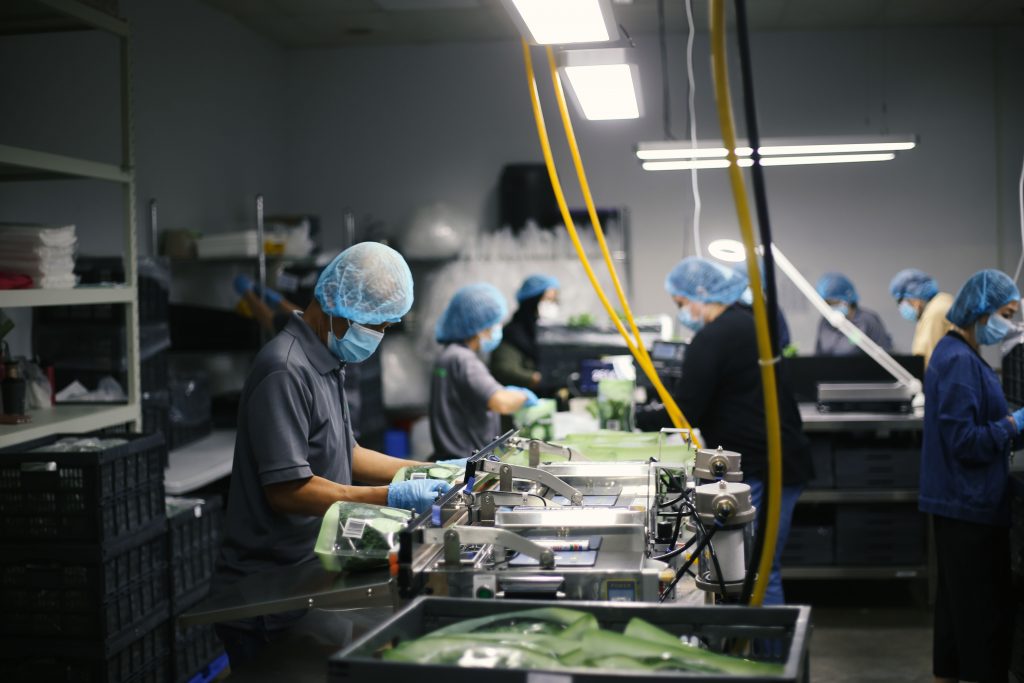All images from Rice File Photos.
You don’t have to look hard to find strains and spores of xenophobia. It’s in your family group chats; it’s in local property listings; it’s in the forum letters published by newspapers; it’s in the comments section of viral Facebook posts.
So despite the wave of public anti-foreigner verbal abuse and violence over the past couple of months, can we truly say that the magnitude of xenophobia in Singapore has increased during the pandemic? The undercurrent of jingoism has always existed—it’s just that people are intensely acting on their fears now, an extension of Covid-induced anxieties.
Fear of immigrants takes different forms of course. There’s the distress about losing demographic ground to other groups; an outward resistance to the idea that the native majority will be overrun by the foreign population. I.E. the “bugger off, we’re full” platitude. Driven by racism, derisive comments and sweeping statements about foreigners are made to spread the idea that they’re not fitting in or refuse to assimilate with locals.
True in some cases, I suppose, considering expat bubbles. But unfair to paint everyone the same colour.
But the more formidable xenophobic anxiety is rooted in economics—the fear of losing jobs and suffering stagnant wages due to foreigners coming here to work. The misconception that the average immigrant in Singapore has an easier time finding work, pushing locals out of the job market. Or the misconception that the average immigrant gets paid twice as much, or gets more government assistance than native residents do.
While the anxiety over shattered rice bowls and tougher livelihoods is understandable, the more extreme cases of xenophobia are more often than not rooted in uninformed positions on foreign labour and capital. These folks might not be aware of the vital, crucial importance of a free-market economy and free trade agreements, especially for a country as small as Singapore.

One of the many agreements—but the most vilified one—we’ve signed is the Singapore-India Comprehensive Economic Cooperation Agreement. Dubbed CECA for short, it’s been the rallying flag for some local circles to proclaim that Indian professionals have been stealing jobs and acquiring citizenship with the help of the government.
Without getting too deep into the specifics, CECA was signed in 2005 to enhance bilateral ties between India and Singapore, spurring even bigger growth in flows concerning trade, investment and people. Tariffs, import taxes from either country, will be reduced or removed. Singaporeans and Indian nationals have an easier time conducting business and investments between both of their countries. Among other mutual economic benefits that have ensued since then.
And yet, the discomfort over CECA persists, prompting the Ministry of Trade and Industry to issue statements to debunk prevailing misbeliefs like unconditional immigration privileges and over-concentration of Indian nationals. Which didn’t do much to allay fears when the Delta variant of Covid-19—first found in India back in April—arrived, aggravating the mistrust between the native population and Indian migrants in Singapore.
Loud calls for draconian, anachronistic measures were made, like shutting down our borders to foreigners. Again, not a new concept.
Conceding to Xenophobia

Alright then, so here’s a thought experiment: what if the authorities relent and said fine, you nationalists win? The borders to Singapore are closed; no immigration allowed. Stricter border controls all around, make it impossible for outsiders to become new Singaporean citizens. Companies can only employ locals—in fact, foreign companies aren’t allowed to set up or invest here.
Essentially, a Singapore exclusively for Singaporeans.
Let’s look at the immediate impact. Many industries that employ a lot of low-skilled immigrant workers—such as construction and cleaning services—will face a phenomenal shortage of labour. Migrants tend to fill the labour-intensive, high-risk jobs that citizens don’t want to take for the pay offered.
If we’ve sent all the foreigners back, who’s going to build that new BTO flat in Potong Pasir? Construction projects get delayed, including housing and other essential public amenities like MRT stations, schools and hospitals.
Sectors like retail and F&B get hit too, disrupting the service standards that Singaporeans currently enjoy. Less manpower from abroad means lesser people in customer service after all, so it’ll be hard to find people to man counters, cook in kitchens or be waiting staff. And we all know just how much Singaporeans hate waiting too long for their food to be served.

To fix this, significantly higher wages can be offered to attract more local workers to the service jobs that many immigrants occupy, be it nursing, domestic housekeeping or caregiving. Maybe if we’re earning big bucks to clean someone’s windows, we would.
But higher costs borne from employing locals translates to higher costs for consumers. And if labour costs raises the price of medical treatments, fast food and houses, people will soon purchase fewer of them. Push up costs too much, and some jobs—like those in manufacturing and remote customer service—might disappear or move to other countries.
That preferential treatment for local workers? Yeah, it’ll displace more jobs than create them in the end.
White-Collar Woes

Okay, so what if we run on the presumption that Singaporeans will only allow immigration when it’s convenient for them? Let’s say migrants are only let in to work in jobs like domestic helpers and construction workers. Locals will take everything else.
On paper, it would seem like a win-win. In reality, we still need foreign professionals because (a) we’ve got too small a pool of domestic talent and (b) brain drain. Six in ten Singaporeans are willing to leave the country in pursuit of better opportunities, wages, living standards, or even socio-political climates. Indeed, many have found success and genuine happiness living abroad.
So what does it mean for white-collar industries if we’re keeping it local? When professional talent becomes scarce, businesses can’t or grow without exceptional work output. And since the unique perspectives and knowledge of foreign experts and entrepreneurs are unavailable, businesses can’t innovate. We’d be stuck with Commodore 64s while the rest of the world run with Apple Silicon Macs.

Let’s look at the big picture, then. Singapore runs on an export-driven economy, playing the intermediary role where we take in raw materials and raw ideas before turning them into better products to export. We’re a country-sized middle manager, shipping out electrical machinery, mineral fuels, chemicals and pharmaceutical products that have been transmogrified from materials provided by other resource-rich countries.
Thus, the necessity of foreign direct investments and letting global companies site projects in Singapore. Scaring foreign investors, companies and entrepreneurs away will only serve to shrink the flow of our exports, resulting in a trade deficit.
This, in turn, affects investor and consumer confidence, affecting our global financial standing. With our currency and financial institutions devalued, we pay more for imported products. We all lose when the economy gets stifled by xenophobia—less jobs, higher costs of living, and little hope at the end of the tunnel.
Open Policies

Of course, the hypothetical proferred above is a simplistic take on the state of xenophobia in Singapore, an elementary argument that pits locals against foreigners. Real life is complex, and so are our nuanced concerns about the approaches adopted and implemented by the government to strike an equitable sharing of economic benefits.
On the most part, Singaporeans are fine with having foreigners working here. But are we relying too much on them? How do we ensure that those left behind due to immigration get to upgrade their skills for gainful employment? Those questions—among many, many others—doesn’t always have clear answers.
The underlying lesson here: Singaporeans have little choice but to rely on trade, foreign capital, investment, manpower for growth to gain preferential treatment in the global economy, including tariff-free access to overseas markets. And that means living with free trade agreements like CECA too.
It’s completely fair for Singaporeans to feel edged out over losing jobs to foreigners, but without a workforce filled up by them, we’ll be in a far worse position. The global talent network needs to be accessed to learn from them to remain relevant and competitive.
Truth is, Singapore remains vulnerable to international shocks and cannot lose any manner of competitiveness—we’re too tiny a domestic economy to stimulate local demand, unlike China, India or even Indonesia.

Another truth: the Singapore government has actually tightened restrictions on foreign workers in recent years. Contrary to popular belief, it’s actually pretty hard to get citizenship here with immigration getting more restrictive. It got even more so over the last year due to the pandemic.
So we’ve learned that a retreat from globalisation is not the solution, especially for small economies. Immigration and an open economy are not evil; Singaporeans have been reaping the rewards all these years, after all. We’re paying Value Dollar Shop prices for everyday goods, we’re enjoying a multitude of high-end services, we’re eating affordable food with ingredients sourced all over the world.
For policymakers, their responsibility is to ensure that the benefits of letting foreigners into our fold are shared equitably among all. But on our end, it would probably serve us well to change our mindsets; even leverage on the opportunities of a global network.
Also, why spend so much time and energy finding ways to sicken ourselves with toxic xenophobia? We’ve already got one global endemic to deal with, there’s no need to concentrate on another.
This article is brought to you in collaboration with the National Youth Council.
How can we foster greater discussions about immigration? Email us your thoughts at community@ricemedia.co.







